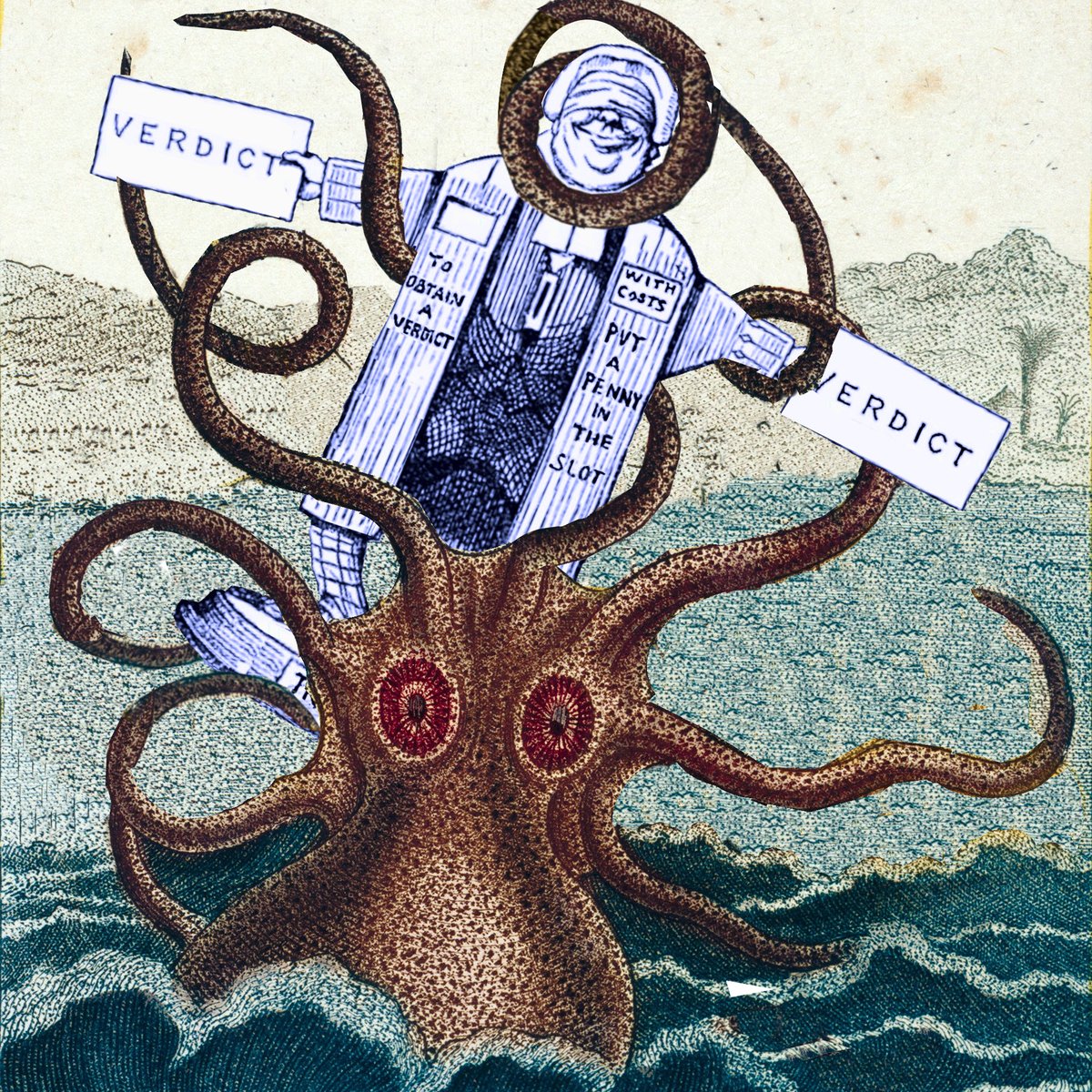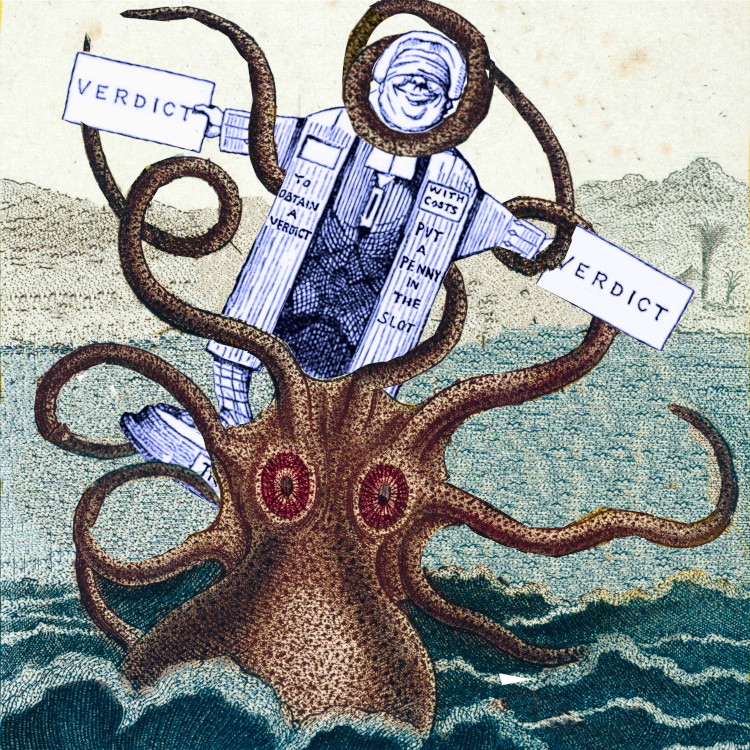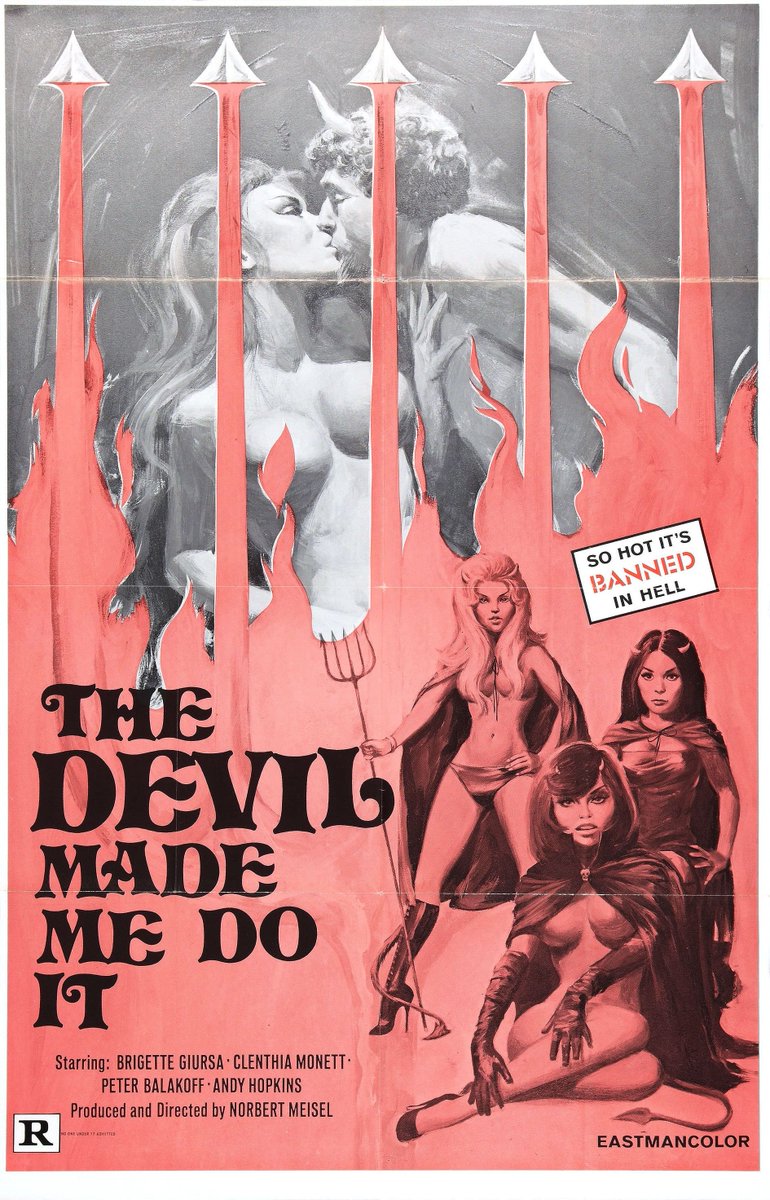
For many #ConstitutionalLaw scholars, last years' #Dobbs decision on #AbortionRights at the #SupremeCourt came as a dismaying shock, because it showed conclusively that #conlaw wasn't a realm of ideologically consistent intellectual foment, but rather, a matter of *politics*. 1/ 

If you'd like an essay-formatted version of this thread to read or share, here's a link to it on pluralistic.net, my surveillance-free, ad-free, tracker-free blog:
pluralistic.net/2023/03/25/con… 2/
pluralistic.net/2023/03/25/con… 2/
Writing for @CreditSlips, the #FinanceLaw scholar #AdamLevitin admits to feeling a bit of schadenfreude in that moment. The "blue collar" law scholars in "grubby" banking and money fields have always treated the conlaw set as "slightly clueless toffs":
creditslips.org/creditslips/20… 3/
creditslips.org/creditslips/20… 3/
As a field, conlaw fiercely resists the idea that their field is "largely a battle of normative opinions, without any quasi-objective touchstone or clearly right or wrong answers." 4/
Finance law, by contrast, firmly roots its understanding of outcomes in expediency and politics as much as the text of the law. 5/
And of course, every conlaw scholar must know that - at certain points - the Supremes' most consequential decisions were political, overturning jurisprudence based on shifting cultural attitudes. 6/
Think of #AbrahamLincoln, whose anti-#slavery laws were repeatedly struck down by the #SCOTUS of the day. Lincoln's predecessors had filled the court with pro-slavery southerners who remained on the bench long after their states seceded from the Union:
theconversation.com/packing-the-co… 7/
theconversation.com/packing-the-co… 7/
That court ruled in #DredScott that Black people were "so far inferior that they had no rights which the white man was bound to respect, and that the negro might justly and lawfully be reduced to slavery for his benefit":
teachingamericanhistory.org/library/docume… 8/
teachingamericanhistory.org/library/docume… 8/
Small wonder that the Supreme Court was considered "the last stronghold of Southern power." The court consistently ruled against Lincoln and Lincoln simply ignored their rulings:
constitutioncenter.org/blog/lincoln-a… 9/
constitutioncenter.org/blog/lincoln-a… 9/
Eventually, Lincoln hit on a very honorable solution to an illegitimate court that frustrated the political will of democratically accountable lawmakers: #PackTheCourt. He reorganized the Federal Circuits to purge federal judges who supported the Confederacy. 10/
He also filled SCOTUS vacancies with loyalists. Even so, that didn't get him a majority - but he didn't need a majority - the political support and momentum of the anti-slavery movement flipped those recalcitrant judges. 11/
The law didn't change, but once those judges saw that they were standing athwart a vast social upheaval, those judges' formerly iron certainties about the law crumbled. 12/
That wasn't the only time the Supremes discovered heretofore unsuspected flexibilities in their granite certainty about the Constitution. 13/
Under #FDR, a pro-oligarch Supreme Court consistently struck down the wildly popular #NewDeal policies that won him a landslide electoral victory.
These decisions were widely denounced by legal scholars - and the public. 14/
These decisions were widely denounced by legal scholars - and the public. 14/
As the court annihilated worker protections and programs to rebuilt the shattered economy, #FDR used the bully pulping to call the court a "no-man's-land where no Government— State or Federal—can function":
smithsonianmag.com/history/when-f… 15/
smithsonianmag.com/history/when-f… 15/
FDR proposed age limits on judges - which was just a roundabout way of forcing the retirement of the long-serving judges who'd been appointed by the #GildedAge plutocrats whose greed had precipitated the #GreatDepression. 16/
Forcing retirements on the #NineOldMen would open up seats for FDR to fill.
Naturally, the Supremes refused to countenance such a matter. 17/
Naturally, the Supremes refused to countenance such a matter. 17/
So FDR went to Congress and demanded the authority to appoint a new, younger judge for every over-70 judge who wouldn't retire (contrary to popular mythology, there is no law that sets the number of SCOTUS seats at nine and the number has fluctuated widely through history). 18/
For the next 168 days, the only newsworthy subject was the legitimacy of the Supreme Court. It filled every newspaper, barroom and workplace conversation. 19/
The GOP was demolished in the 1936 middterms, which were seen as a referendum on the Supreme Court's legitimacy - a referendum that SCOTUS decisively lost.
Soon, it was clear that FDR had the majority he needed to let him appoint new judges. 20/
Soon, it was clear that FDR had the majority he needed to let him appoint new judges. 20/
And then...The court found religion. They upheld a minimum wage law that was substantively identical to other laws they'd struck down just a little while before.
They upheld #NLRB rulings that were basically indistinguishable from others they'd invalidated. 21/
They upheld #NLRB rulings that were basically indistinguishable from others they'd invalidated. 21/
They reversed themselves on #InterstateCommerce and opened the door to regulating coal mines. Then they came for sweatshop garment factories. The political will to pack the court weakened - but FDR still got his court, without having to pack it. 22/
The law was subservient to politics.
In the decades since, we've allowed the myth of ivory-tower conlaw to grow unchallenged. We've maintaining the pretense - so beloved of the #FederalistSociety - that the law is a "textual" matter. 23/
In the decades since, we've allowed the myth of ivory-tower conlaw to grow unchallenged. We've maintaining the pretense - so beloved of the #FederalistSociety - that the law is a "textual" matter. 23/
The slight of hand is obvious: every oppressor wants to claim that they're "normal" while their opponents are "political." Paying women less then men, or Black people less than white people, is "the market" while demands for #PayEquity are "political." 24/
Jurisprudence reflects politics and can *only ever* reflect politics. The law *must* deal in ideas like "fairness" and "reasonableness," and these concepts change and change again. 25/
Judges' authority only comes secondarily from their bailiffs and "peace officers" - a judge's true authority comes from their perceived legitimacy. 26/
Judges and enforcers know this, even when they don't admit it, which is why they spend so much effort on set-dressing - robes and gavels and somber paneling and formal language. Deep down, they're theater kids with pretensions. 27/
That's what makes the decision to bail out #SiliconValleyBank so distressing for finance law scholars like Levitin: they understand their law to be grounded in *prudence* and the #SVB bailout is so *reckless*. 28/
That's why Levitin calls the SVB bailout "banking law's *Dobbs* moment."
SVB is a bank that increased exec pay in lockstep with the recklessness of their management, doubling CEO Greg Becker's bonuses as he decreased the bank's reliability:
ft.com/content/02ff28… 29/
SVB is a bank that increased exec pay in lockstep with the recklessness of their management, doubling CEO Greg Becker's bonuses as he decreased the bank's reliability:
ft.com/content/02ff28… 29/
Becker liquidated his stock just before his bank collapsed, cashing out *twice* on that recklessness:
abcnews.go.com/Business/svb-e…
All of SVB's execs got bonuses just hours before the bank failed:
cnbc.com/2023/03/11/sil…
That's what makes the bailout so dismaying. 30/
abcnews.go.com/Business/svb-e…
All of SVB's execs got bonuses just hours before the bank failed:
cnbc.com/2023/03/11/sil…
That's what makes the bailout so dismaying. 30/
It involves an exotic (to put it mildly; "absurd" also springs to mind) interpretation of the FDIC's statutory authority and the contours of the #DoddFrankAct, passed after the #GreatFinancialCrisis to ensure that the public would never reward reckless banks for failure. 31/
As Levitin writes, "I really don't know how one can teach prudential banking regulation after SVB. 32/
"How can you teach the students the formal rules—supervision, exposure and concentration limits, prompt corrective action, deposit insurance caps—when you know that the rules aren't followed?" 33/
In other words, as with Dobbs, we have enforcers and judges behaving as though they are certain that they can maintain legitimacy in the face of widespread dismay at their actions. 34/
The politics revealed by these choices are the politics of *impunity*, a bedrock belief that we don't matter anymore and we can all just go fuck ourselves.
That's why SVB's apologists are so unhinged. 35/
That's why SVB's apologists are so unhinged. 35/
They argue that we had to bail out SVB because depositors would pile into #Jpmorgan and other already #TooBigToFail/#TooBigToJail banks. But they exclude the possibility that we'd create *public* banks that would break free of this seeming necessity:
pluralistic.net/2023/03/15/mon… 36/
pluralistic.net/2023/03/15/mon… 36/
They argue that giving $2B to SVB's investors (because they were also depositors in the bank they crashed) that it's not "bailing out investors." 37/
But they ignoring the possibility that if we're gonna make up new interpretations of Dodd-Frank, we could simply tack on a "no, fuck those guys, they get *nothing*" rider:
pluralistic.net/2023/03/18/2-b…
They argue that they just want to save "small businesses" and "startups." 38/
pluralistic.net/2023/03/18/2-b…
They argue that they just want to save "small businesses" and "startups." 38/
They ignore the possibility that if we're going to find political will to save a bank whose balance-sheet was 90+% billionaire VC money, we might also find political will to impose conditions on the bail-ees. 39/
Like, if we're gonna save those depositors in the name of "saving jobs" we could make them sign legally binding pledges never to lay off another worker within 10 years of a stock buyback or dividend:
pluralistic.net/2023/03/21/tec… 40/
pluralistic.net/2023/03/21/tec… 40/
The fact that none of this is on the table tells us a lot about how elites view their position in society. Specifically, it tells us that they think that the majority of us should get nothing but scraps from their tables.
They haven't made a secret of this. 41/
They haven't made a secret of this. 41/
40 years ago, antitrust underwent a hostile takeover by billionaires' lickspittles from the #ChicagoSchoolOfEconomics, who argued #monopolies were *good* and demanded judges ignore 75 years of precedent and use antitrust law to *defend* monopolies:
eff.org/deeplinks/2021… 42/
eff.org/deeplinks/2021… 42/
The Chicago School's paymasters funded lavish junkets - the #ManneSeminars - where 40% of the federal judiciary attended luxury re-education camps to teach them to love monopolies:
pluralistic.net/2021/08/13/pos… 43/
pluralistic.net/2021/08/13/pos… 43/
Today, those judges and the lawyers who appear before them argue that "textual" interpretation of antitrust - say, acting *against* monopolies - is laughable, ahistorical nonsense that "flies in the face of precedent." And yeah, it does:
publicknowledge.org/no-pain-no-gai… 44/
publicknowledge.org/no-pain-no-gai… 44/
It flies in the face of the illegitimate, corporate-purchased precedent that turned America into an oligarch's playground. It very strictly adheres to the *new* precedent that *politics* will (someday) force upon the law. 45/
We see this in play with the copyright case against the @internetarchive, which a lower court badly fumbled yesterday, ruling against the right of libraries to scan their print holdings and lend them out. 46/
The court bases this on the existence of a "licensed" ebooks from publishers - ebooks that cost many multiples of the print editions and self-destruct after just a few lend-outs:
blog.archive.org/2023/03/25/the… 47/
blog.archive.org/2023/03/25/the… 47/
The politics here are obvious. As @brewsterkahle put it, this decision conceives of libraries as "customer service departments for corporate database products." i 48/
The truth is that libraries are ancient, bedrock institutions. Libraries are older than copyright. They're older than printing. Than paper. Than *commerce*. 49/
The realpolitik of this decision - and the strategists at the Big 5 publishers who support it - is that the party is over for us plebs, the age of public goods is ended, and we should go back belowstairs and get used to tugging our forelocks again:
doctorow.medium.com/the-end-of-the… 50/
doctorow.medium.com/the-end-of-the… 50/
The law is political. The fight over these decisions to create socialism for the rich and rugged individualism for the poor is a *political* fight. 51/
Yes, we can and should call on Congress to amend the statutes to clarify them, in small words that even Supreme Court judges and Chicago-poisoned economists can understand. 52/
But that in itself won't make change - what will make change is the same thing that has always made change: *politics*. 53/
• • •
Missing some Tweet in this thread? You can try to
force a refresh





























